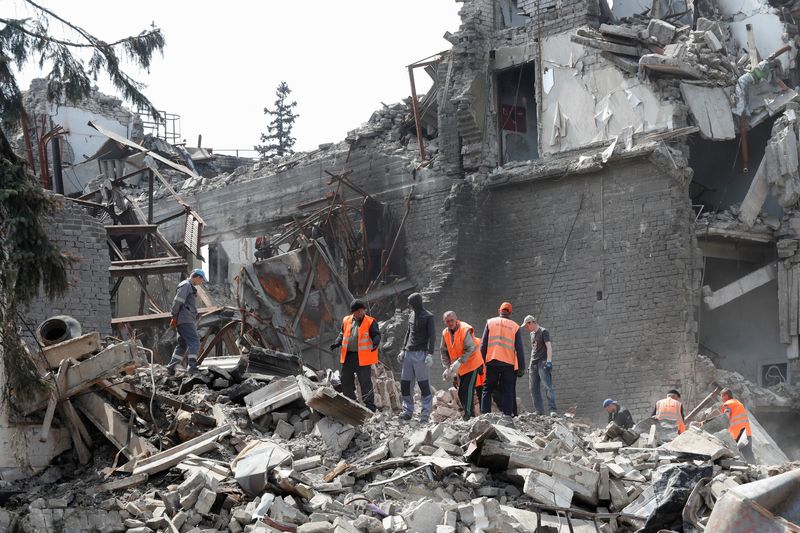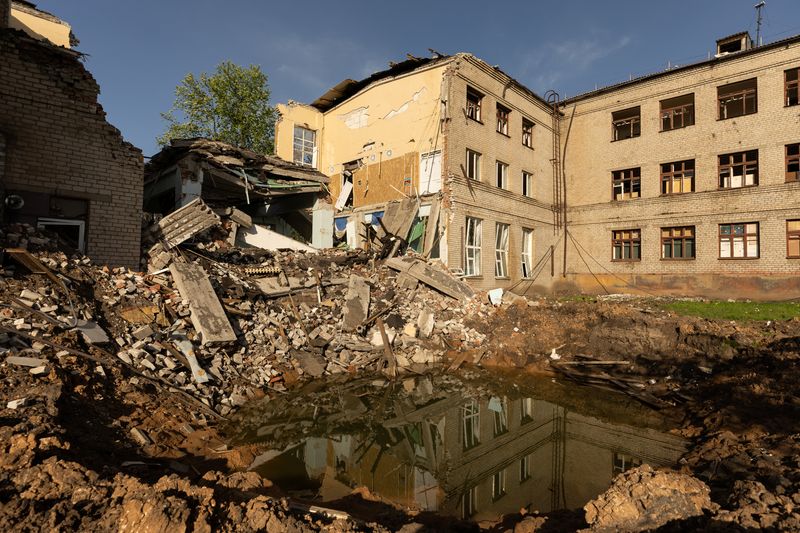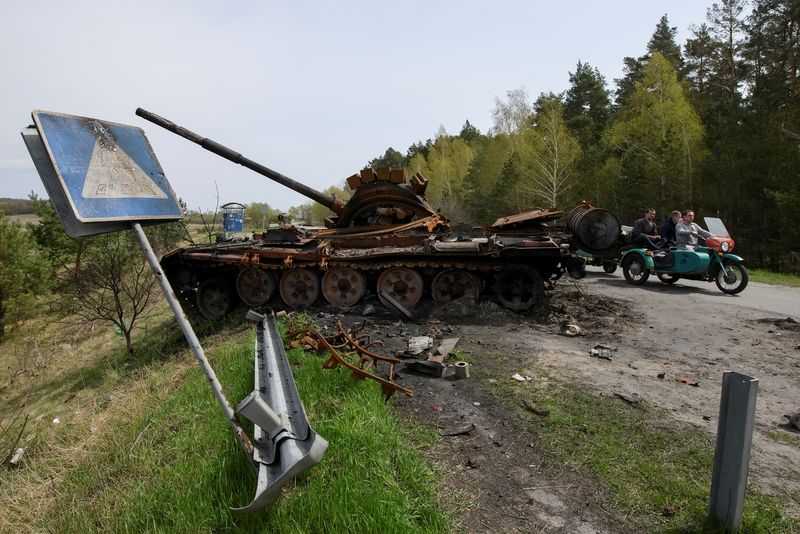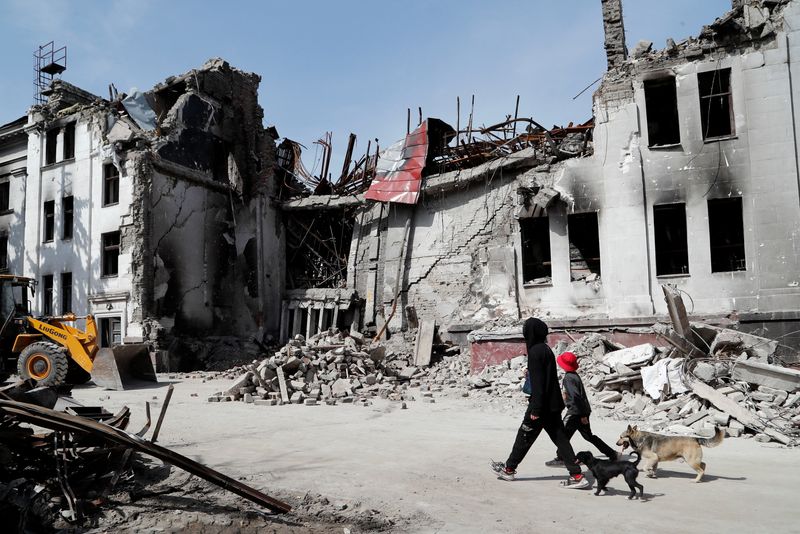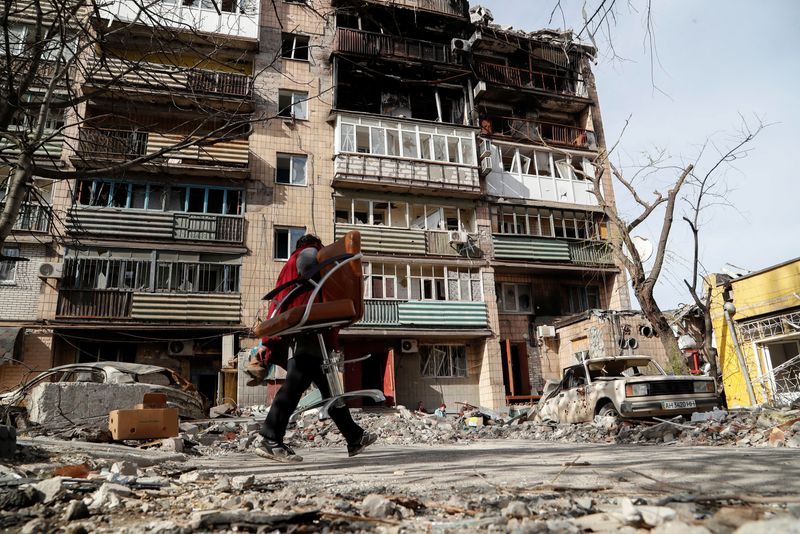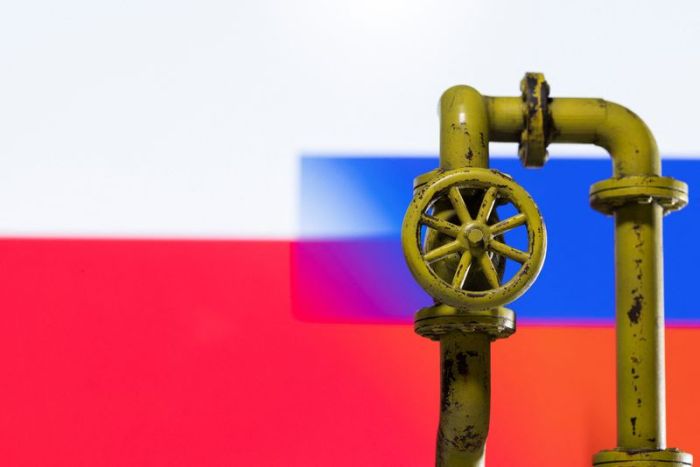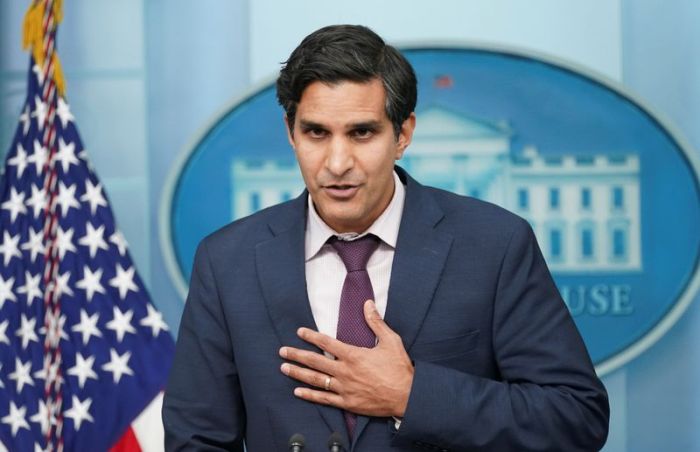WARSAW/ RAMSTEIN AIR BASE, Germany/KYIV (Reuters) – Kyiv accused Russia of blackmailing Europe by cutting off gas supplies to Poland and Bulgaria as the crisis in Ukraine deepened, with tensions surging in nearby Moldova and Moscow warning the West to back off.
NATO member and staunch Kremlin opponent Poland is among the European countries seeking the toughest possible sanctions against Russia for its invasion. Fellow alliance member Bulgaria is almost completely reliant on Russian gas imports.
Poland’s state-owned PGNiG said supplies from energy giant Gazprom via Ukraine and Belarus will be cut at 0800CET (0600GMT) on Wednesday, but Warsaw said it did not need to draw on reserves and its gas storage was 76% full.
“The gas system in Poland is balanced and customers can feel safe,” Minister in Charge of Energy Security Piotr Naimski said.
Russian President Vladimir Putin has called on “unfriendly” countries to pay for gas imports in roubles, a move only a few buyers have implemented so far.
Gazprom said it had not suspended supplies to Poland but that Warsaw had to pay for gas from it in line with its new “order of payments.” It declined to comment regarding Bulgaria.
Andriy Yermak, the chief of staff to Ukrainian President Volodymyr Zelenskiy, said Russia was “beginning the gas blackmail of Europe”.
“Russia is trying to shatter the unity of our allies. Russia is also proving that energy resources are a weapon. That is why the EU needs to be united and impose an embargo on energy resources, depriving the Russians of their energy weapons.”
Russia’s invasion of Ukraine, launched on Feb. 24, has left thousands dead or injured, reduced towns and cities to rubble, and forced more than 5 million people to flee abroad.
Moscow calls its actions a “special operation” to disarm Ukraine and protect it from fascists.
Ukraine and the West call this a false pretext for an unprovoked war to seize territory in a move that has sparked fears of wider conflict in Europe unseen since World War Two.
Russia’s ambassador to the United States has warned Washington to stop sending arms to Ukraine, saying that large Western deliveries of weapons were inflaming the situation and would lead to more losses.
Russian foreign minister Sergei Lavrov warned late on Monday that: “NATO, in essence, is engaged in a war with Russia through a proxy and is arming that proxy. War means war,” saying the risks of nuclear conflict should not be underestimated.
U.S. Pentagon spokesman John Kirby said there was no reason for the conflict in Ukraine to escalate to nuclear war. “A nuclear war cannot be won and it shouldn’t be fought,” he said.
Ukraine also accused Moscow on Tuesday of trying to drag Moldova’s breakaway region of Transdniestria into the conflict after authorities in the Moscow-backed region said they had been targeted by a series of attacks.
Reuters could not independently verify the accounts. The Kremlin, which has troops and peacekeepers in the region, said it was seriously concerned.
FIGHTING RAGES
Meanwhile fighting continued in eastern and southern Ukraine.
Russia’s defence ministry said its forces had “liberated” the entire Kherson region in southern Ukraine and parts of the Zaporizhzhia, Mykolaiv and Kharkiv regions, Interfax news agency reported.
If confirmed, that would represent a significant Russian advance.
One of President Vladimir Putin’s closest allies, Nikolai Patrushev, said Ukraine was spiralling towards a collapse into “several states” due to what he cast as a U.S. attempt to use Kyiv to undermine Russia.
U.S. Defense Secretary Lloyd Austin, welcoming officials from more than 40 countries to Ramstein Air Base in Germany, headquarters of U.S. air power in Europe, said: “Nations from around the world stand united in our resolve to support Ukraine in its fight against Russia’s imperial aggression.”
Germany, which had come under pressure after refusing Ukrainian pleas for heavy weapons, announced it would send Gepard light tanks with anti-aircraft guns.
Mark Milley, chairman of the U.S. Joint Chiefs of Staff, told reporters while flying to Tuesday’s meeting in Germany that the next few weeks in Ukraine would be “very, very critical”.
“They need continued support in order to be successful on the battlefield,” he said.
United Nations Secretary-General Antonio Guterres, in Moscow on Tuesday, made a proposal on how to evacuate people from the besieged Ukrainian city of Mariupol, involving a “Humanitarian Contact Group” of Russia, Ukraine and U.N. officials.
Ukraine said no corridors were operating on Tuesday due to continued fighting.
The United Nations said Putin had agreed “in principle” during talks with Guterres to U.N. and Red Cross involvement in evacuating civilians from the Azovstal steel plant in Mariupol, scene of the worst fighting of the war.
Authorities in Transdniestria, an unrecognised sliver of land in Moldova bordering southwestern Ukraine that has been occupied by Russian troops since the 1990s, said explosions had damaged two radio masts that broadcast in Russian and that one of its military units had been attacked.
It provided few details, but blamed Ukraine, while Moldova’s pro-Western President Maia Sandu blamed the “escalation attempts” on “pro-war” factions in Transdniestria.
Moldova, an ex-Soviet republic with close cultural ties to NATO member Romania, expressed alarm last week after a top Russian general said Moscow aims to forge a path through Ukraine to Transdniestria.
(Additional reporting by Reuters journalists; Writing by Peter Graff, Gareth Jones and Costas Pitas; Editing by Angus MacSwan, Mark Heinrich and Rosalba O’Brien)

